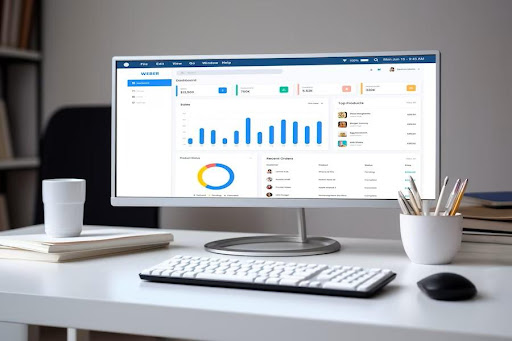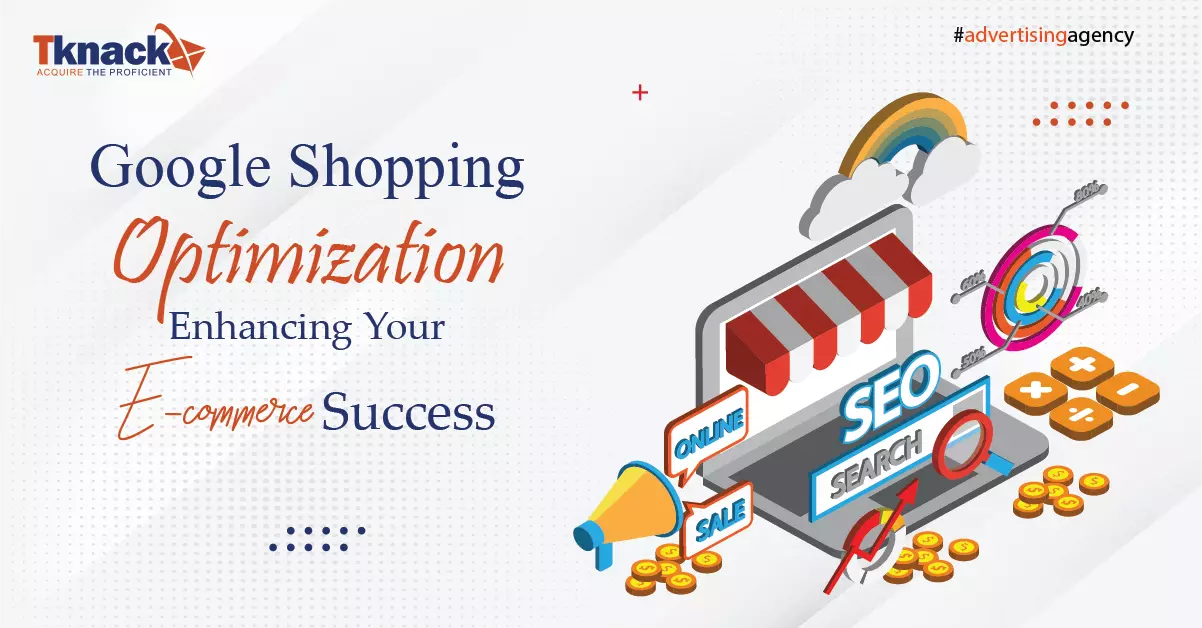Google Shopping Optimization
If you’re running an online store, you know it’s a competitive market out there. One way to get your products in front of more potential customers is by using Google Shopping. But just putting up a list of your products isn’t enough. You’ve got to optimize your Google Shopping ads if you want to stand out from the crowd.

How to Get the Most Out of Google Shopping Optimization
Before we explore optimization techniques, it’s important to understand the significance of Google Shopping for e-commerce businesses. Google Shopping is a service offered by Google that enables businesses to directly promote their products in search results.
How does Google show a collection of product images?
Whenever a user looks for a product, Google shows a collection of product images, prices, and store names at the top of the search results page.

This collection, known as the Google Shopping carousel, enables users to have a visual preview of the available products, which helps them compare prices and features with ease.
For e-commerce businesses, Google Shopping provides several benefits:
- Increased Visibility:
Your products show up right at the top of search results, making them super visible to potential customers.
- Highly Targeted:
Your ads are shown to people who are actually searching for products like yours, which means you’re reaching the right audience.
- Visual Appeal:
The ads are eye-catching and more likely to attract clicks. Now that we know how awesome Google Shopping is, let’s talk about how to make the most of it by optimizing your campaigns.
How to Implement Google Shopping Optimization Strategies

1. Keyword Research:
When it comes to optimizing Google Shopping, conducting keyword research is as important as it is for traditional SEO.
Why Keyword Research Is Important?
By identifying relevant keywords that potential customers might use to search for your products, you can increase your chances of being found. With tools like Google Keyword Planner, you can easily locate keywords with high search volumes and low competition, giving your products the visibility they need to succeed.

2. Improve Product Titles and Descriptions:
When you’re writing product titles and descriptions, it’s super important to keep things simple and descriptive.
How Can It Help You to Optimize Product Titles and Descriptions?
You want people to know exactly what they’re getting, right? It’s important that you include all the important keywords naturally, without stuffing them everywhere. Also, Improve product titles and descriptions for effective results. That way, your ads will be top-notch and easy to find!
How to Maximizing Profits with Competitive Pricing:
When creating Google Shopping ads, it’s important to offer competitive pricing. Compare your prices to competitors and highlight any discounts or special offers.

Use High Quality Images:
Google Shopping offers high-quality images from various angles to give customers a better view of products, helping them make informed purchase decisions.
3. Competitor Analysis:
If you’re trying to stay ahead of the game, it’s a good idea to keep an eye on what your competitors are doing with their Google Shopping campaigns. You can learn a lot by checking out their product listings, pricing, and the things they say in their ads. If you notice that they’re always doing better than you, it might be time to tweak your own strategies a bit.
4. Product Categorization:
When you create a Google Shopping feed, it’s important to categorize your products correctly. This is because most users search for products by category and filter their results accordingly. By accurately categorizing your products, you increase the chances of them being displayed to users who are actively looking for items in those categories.

5. Landing Pages Optimization:
It is important to ensure that the web pages linked to your Google Shopping ads are quick to load, provide useful information, and are simple to navigate.

6. How to Create a Budget Management Plan:
Managing your budget is key to success in business. To improve your campaign performance, try Google Ads’ budget simulator. It allows you to test different scenarios and optimize your budget for maximum ROI.
7. Ad Copy Testing:
Optimize your ad text by testing different copy variations, language, calls to action, and messaging to see which resonates best with your target audience.
8. Inventory Management:
Make sure your Google Shopping ads only display available items. Remove or pause out-of-stock items to keep customers happy.
9. Shipping and Returns Policies:
It’s important to consider including your shipping and return policies on your website and Google Shopping ads. Doing so can help establish trust with potential customers and may even encourage them to make a purchase.
10. The Impact of Performance Tracking on Your Business:
Track important metrics like CTR, conversion rate, and ROAS with Google Analytics and Google Ads conversion tracking to optimize your Google Shopping campaigns for better results.
11. Use Ads Extension:
You can use ad extensions to add more information to your ads, such as free shipping or product ratings, making them more appealing and informative.
12. How to Use Google to Showcase Ads:
Google Shopping Showcase Ads lets you group related products to create a visually appealing shopping experience. Showcase Ads are great for collections or themed campaigns.
13. Customer Reviews and Ratings:
To help increase sales, it’s important to ask customers to rate and review your products. Positive reviews can have a big influence on a buyer’s decision, and Google Shopping shows star ratings next to items.

14. How to Calculate Your Return on Investment (ROI):
It is important to regularly analyze the ROI of your Google Shopping campaigns to ensure that your advertising budget is generating a positive return. This allows you to adjust your strategies based on the products and campaigns that yield the best outcomes.
Conclusion
To succeed in e-commerce, optimize Google Shopping campaigns with advanced strategies and stay up to date with industry trends. Blend creativity, data-driven decisions, and audience understanding. Continuously test and refine strategies to stay competitive and provide value to customers. Dedication, innovation, and commitment to excellence lead to e-commerce success and a strong online presence.
Read More: What is the effectiveness of marketing automation?
Supercharge Your Marketing: Get Started Today!
Elevate Your Online Presence with Our Expertise. Contact Our Digital Marketing Team Today!




